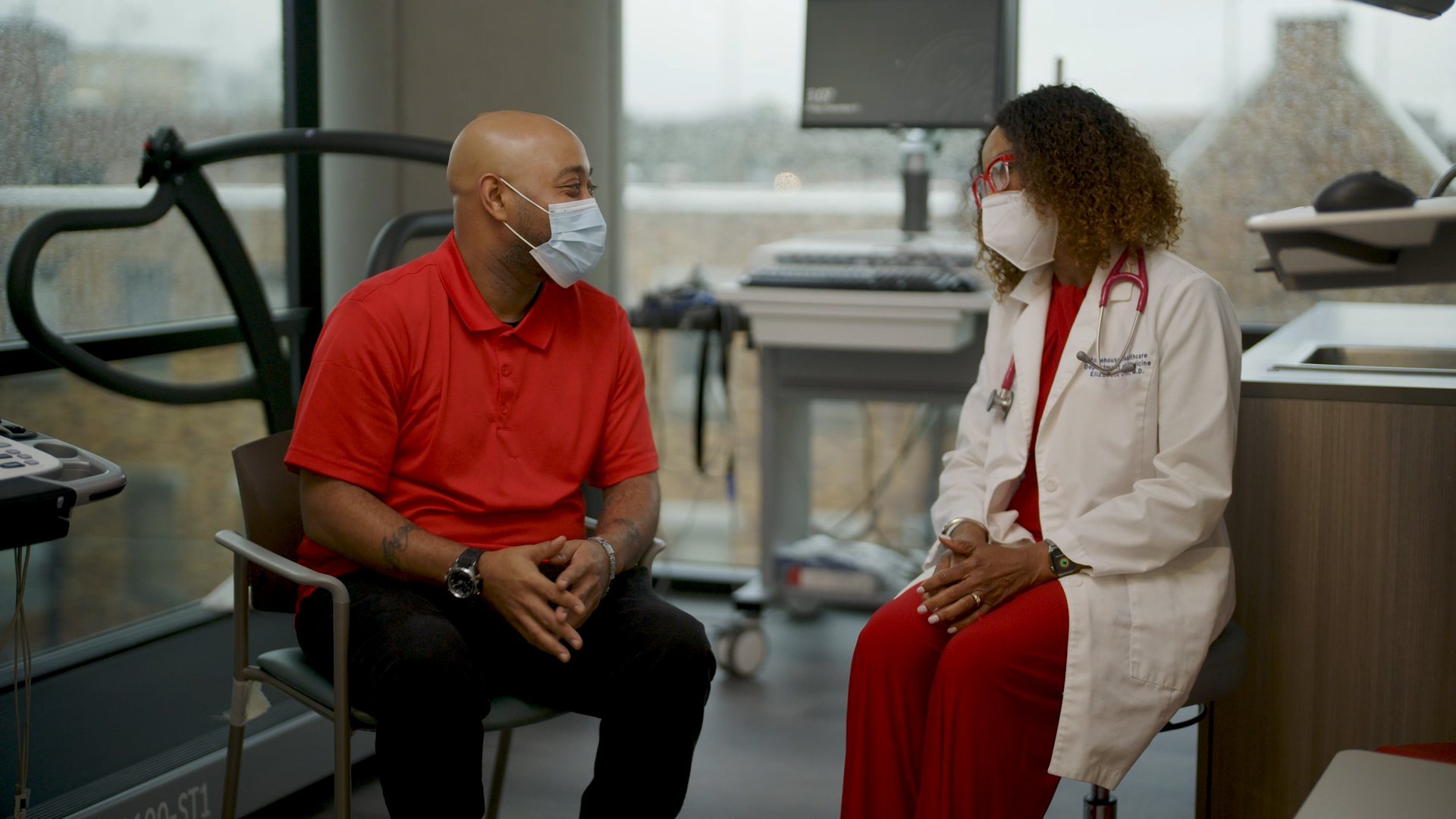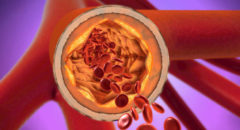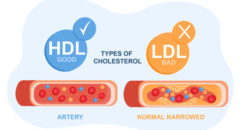
(Content sponsored by Amgen)
We’ve all heard of HDL (high-density lipoprotein) and LDL (low-density lipoprotein) cholesterol.1
But did you know there is another lipoprotein particle that is rarely screened for and disproportionately affects African Americans at high levels?
High circulating levels of a lipoprotein particle called lipoprotein(a) – commonly known as Lp(a) – can be harmful, are predominately genetically driven,2-4 and cannot be controlled through diet and exercise. Lp(a) is made up of an LDL particle with a protein called apolipoprotein(a), or apo(a), attached to it. High levels of Lp(a) in the blood can lead to blockages and possible clotting in blood vessels. Additionally, high levels of Lp(a) can promote inflammation. All three effects may increase the chance of suffering from atherosclerotic cardiovascular disease (ASCVD), which may lead to a heart attack, stroke or needing revascularization procedures like angioplasty and bypass surgery.2
When musician Joseph Daniels found himself slowing down on the job and taking more frequent breaks even though he was an otherwise healthy 30-year-old, he was concerned – and confused.
“I’m healthy, I’m active, I’m walking like ten miles a day,” Daniels said. “So yeah, I was very confused. I really didn’t understand what was going on.”
After seeing a doctor, Daniels was diagnosed with a high Lp(a) level. “I had never heard of it. It was new to me.”
While Lp(a) research to date has primarily been conducted in individuals of European descent, Lp(a) levels differ by race and ethnicity, with African American individuals showing a mean Lp(a) concentration three times higher than non-Hispanic white individuals.5
Cardiovascular disease is the number one killer of all Americans, with African Americans 30 percent more likely to die from heart disease than non-Hispanic whites.6,7 Diving deeper into the causes of this disparity led Amgen to design the African American Heart Study.
Amgen-sponsored African American Heart Study: A Partnership to Inform Future Drug Research & Development
In collaboration with the Association of Black Cardiologists (ABC) and the Morehouse School of Medicine (MSM), the African American Heart Study is designed to help understand Lp(a) levels and the development of ASCVD in 5,000 adults in the United States who self-identify as African American, Black or of African descent.
“High levels of Lp(a) seem to occur more often in individuals of African American descent, yet that population is vastly underrepresented in clinical trials on the topic,” said Adefisayo M. Oduwole, M.D., FACC, professor of medicine at the Morehouse School of Medicine. “Genetic differences exist between all races, so it’s extremely important to include individuals of varied backgrounds in our studies. Most clinical trials contain very few or even no African American people. So, we are thankful to be working alongside Amgen and the Association of Black Cardiologists (ABC) on this study, which will begin to address this disparity. Information we gather from this study will inform future drug development and treatment.”
This study will enroll 2,500 individuals who self-identify as African American, Black or of African descent with ASCVD and 2,500 individuals who self-identify as African American, Black or of African descent without ASCVD from cardiology and primary care practices across the United States. ABC will conduct community outreach and identify sites along with support from MSM to help ensure the study effectively reaches community-based medical practices.
Amgen’s subsidiary, deCODE Genetics, based in Iceland, will sequence and analyze DNA, RNA, and protein markers from blood samples of consenting participants. With three years of follow-up planned, the broad omics data analyzed by deCODE has the potential to help scientists better understand ASCVD and other diseases that disproportionately affect African Americans. The learnings from the African American Heart Study may also inform future clinical trials and drug development.
For more information on The African American Heart Study, visit the Association of Black Cardiologists Web site.
References:
- American Heart Association. What is Cholesterol? Available at https://www.heart.org/en/health-topics/cholesterol/about-cholesterol. Last accessed: March 15, 2023.
- Reyes-Soffer G, et al. Arterioscler Thromb Vasc Biol. 2022;42:e48-e60.
- Tsimikas S, et al. J Am Coll Cardiol. 2018;71:177-192.
- Kronenberg F, et al. Eur Heart J. 2022;43:3935-3946.
- Tsimikas S, et al. J Am Coll Cardiol. 2022;80:934-946.
- U.S. Department of Health & Human Services. Heart Disease and African Americans. Available at: https://minorityhealth.hhs.gov/omh/browse.aspx?lvl=4&lvlid=19. Last accessed: March 15, 2023.
- American Heart Association. African Americans and Heart Disease, Stroke. Available at: https://www.heart.org/en/health-topics/consumer-healthcare/what-is-cardiovascular-disease/african-americans-and-heart-disease-stroke. Last accessed: March 15, 2023.








